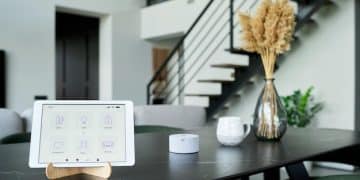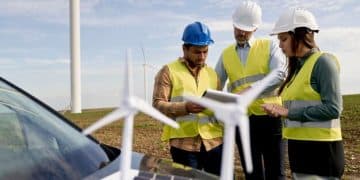Sustainable Living: 3 Home Updates for 2025
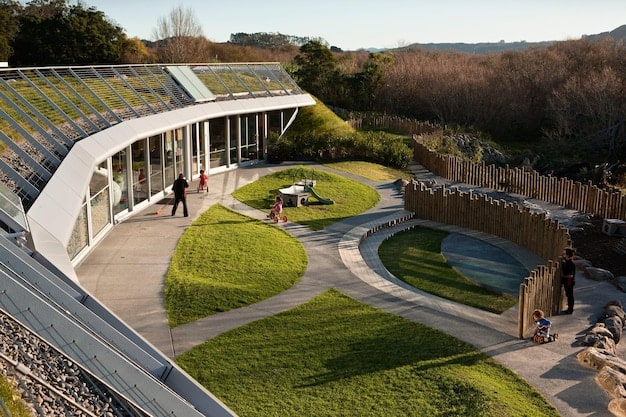
Is Your Home Ready? Discover three key updates for sustainable living in 2025, focusing on energy efficiency, water conservation, and smart home integration to reduce your environmental footprint and enhance your lifestyle.
Are you prepared to make your home a beacon of sustainability? The year 2025 is fast approaching, bringing with it new opportunities to enhance our living spaces with eco-friendly practices. This article will explore three essential updates to ensure is your home ready? 3 updates for sustainable living in 2025, focusing on energy efficiency, water conservation, and smart home technology.
Embracing Energy Efficiency for a Greener Future
Energy efficiency is at the forefront of sustainable living. By reducing energy consumption, we can significantly lower our carbon footprint and save on utility bills. Let’s delve into some practical strategies to make your home more energy-efficient.
Upgrade to Energy-Efficient Appliances
One of the simplest yet most effective ways to boost energy efficiency is by upgrading your old appliances to energy-efficient models. Look for appliances with the Energy Star label, which indicates they meet strict energy-efficiency guidelines set by the U.S. Environmental Protection Agency.
Consider replacing your refrigerator, washing machine, and dishwasher with Energy Star-certified alternatives. These appliances use significantly less energy and water compared to older models, resulting in substantial savings over time.
Optimize Insulation and Windows
Proper insulation and windows play a crucial role in maintaining a comfortable indoor temperature and reducing energy waste. Ensure your home is adequately insulated in the attic, walls, and floors to prevent heat loss during winter and heat gain during summer.
Replace old, drafty windows with energy-efficient windows that have low-E coatings and multiple panes. These windows help to minimize heat transfer and block harmful UV rays, keeping your home cooler in the summer and warmer in the winter.
- Install Smart Thermostats: Smart thermostats learn your heating and cooling preferences and adjust the temperature accordingly, optimizing energy usage.
- Seal Air Leaks: Seal any air leaks around windows, doors, and other openings to prevent drafts and reduce energy waste.
- Use Energy-Efficient Lighting: Switch to LED lighting, which uses up to 75% less energy and lasts much longer than traditional incandescent bulbs.
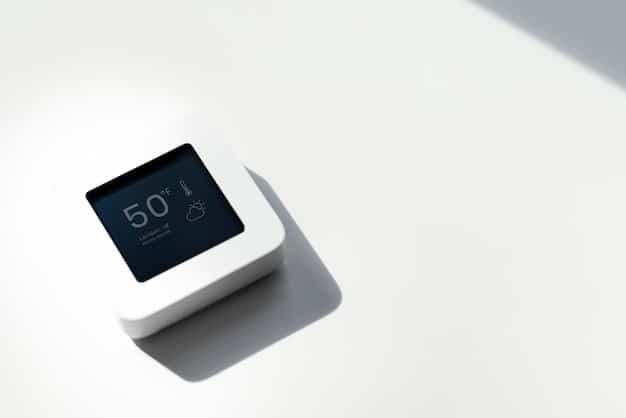
By implementing these updates, you can significantly improve your home’s energy efficiency, reduce your environmental impact, and save money on utility bills. Energy-efficient homes are not only environmentally friendly but also more comfortable and affordable to live in.
Conserving Water for a Sustainable Lifestyle
Water conservation is another critical aspect of sustainable living, especially in regions facing water scarcity. By implementing water-saving measures, you can reduce your water consumption and contribute to a more sustainable future.
Install Low-Flow Fixtures
One of the most effective ways to conserve water is by installing low-flow fixtures in your bathrooms and kitchen. Low-flow showerheads, faucets, and toilets use significantly less water without compromising performance.
Look for WaterSense-certified fixtures, which meet strict water-efficiency standards set by the EPA. These fixtures can reduce water consumption by up to 30% compared to traditional fixtures, resulting in substantial savings on your water bill.
Embrace Water-Wise Landscaping
Your outdoor landscaping can also play a significant role in water conservation. Choose drought-tolerant plants that require minimal watering and consider installing a rainwater harvesting system to collect rainwater for irrigation.
Replace traditional grass lawns with native plants, which are better adapted to the local climate and require less water, fertilizer, and maintenance. Consider using mulch to retain soil moisture and reduce evaporation.
- Fix Leaks Promptly: Repair any leaks in your plumbing system to prevent water waste.
- Use a Broom Instead of a Hose: Sweep your driveway and sidewalks instead of hosing them down to conserve water.
- Water Your Lawn Efficiently: Water your lawn early in the morning or late in the evening to reduce evaporation and ensure that the water reaches the roots of the plants.
Water conservation is not only environmentally responsible but also economically beneficial. By implementing these updates, you can reduce your water consumption, lower your water bill, and contribute to a more sustainable future for your community.
Integrating Smart Home Technology for Enhanced Sustainability
Smart home technology offers exciting opportunities to enhance sustainability by automating energy management, water conservation, and waste reduction. By integrating smart devices into your home, you can gain greater control over your resource consumption and minimize your environmental impact.
Automated Energy Management
Smart thermostats, lighting systems, and appliance controllers can automate energy management, optimizing energy usage based on your preferences and occupancy patterns. These devices can learn your routines and adjust settings accordingly, reducing energy waste and lowering your utility bills.
Smart thermostats can automatically adjust the temperature when you’re away from home, while smart lighting systems can dim or turn off lights in unoccupied rooms. Smart appliance controllers can monitor energy consumption and alert you to potential inefficiencies.
Smart Water Management
Smart water sensors and irrigation systems can help you conserve water by detecting leaks, monitoring water usage, and optimizing irrigation schedules based on weather conditions. These devices can alert you to potential problems and prevent water waste.
Smart water sensors can detect leaks in your plumbing system and shut off the water supply automatically, minimizing water damage. Smart irrigation systems can adjust watering schedules based on rainfall, humidity, and soil moisture levels.
- Monitor Energy Consumption: Use smart meters and energy monitoring apps to track your energy consumption and identify areas where you can reduce your usage.
- Reduce Waste: Use smart trash cans that compact waste and send alerts when they are full, reducing the number of trash bags you use.
- Optimize Recycling: Use smart recycling bins that sort recyclable materials automatically and provide feedback on your recycling habits.
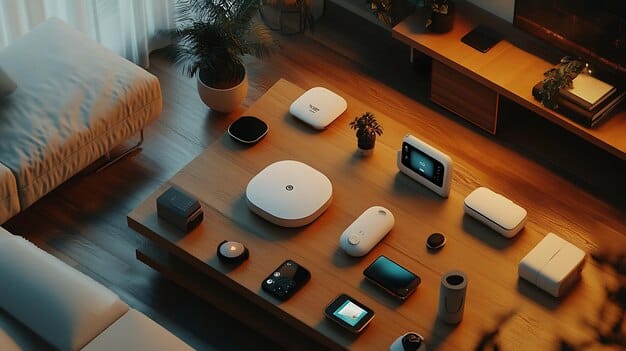
Integrating smart home technology into your sustainable living plan can significantly enhance your efforts to conserve resources, reduce waste, and minimize your environmental impact. By automating energy management, water conservation, and waste reduction, you can create a more efficient and sustainable home environment.
In conclusion, preparing your home for sustainable living in 2025 involves embracing energy efficiency, conserving water, and integrating smart home technology. By implementing these updates, you can reduce your environmental footprint, save money on utility bills, and create a more comfortable and sustainable living space.
| Key Point | Brief Description |
|---|---|
| 💡 Energy Efficiency | Reduce energy use with efficient appliances and insulation. |
| 💧 Water Conservation | Save water using low-flow fixtures and water-wise landscaping. |
| 🏡 Smart Home Tech | Automate sustainability with smart devices for energy and water management. |
| ♻️ Waste Reduction | Minimize waste with smart trash cans and optimized recycling habits. |
Frequently Asked Questions
▼
Energy efficiency reduces carbon footprint and lowers utility bills. It conserves resources by minimizing energy waste, contributing to a more sustainable and environmentally friendly lifestyle.
▼
Low-flow fixtures use significantly less water without compromising performance. They reduce water consumption in showers, faucets, and toilets, leading to substantial savings on water bills.
▼
Smart home technology automates energy and water management, optimizing resource consumption. It enhances sustainability by monitoring and reducing waste, contributing to a more efficient home.
▼
Select native plants adapted to your local climate, as they require less water. Research their watering needs and choose varieties that thrive with minimal irrigation to support conservation and water recycling.
▼
Energy Star-rated appliances meet strict efficiency guidelines, using less energy. This reduces environmental impact and lowers utility costs, making it a reliable way to identify energy-saving products.
Conclusion
As we approach 2025, updating your home for sustainable living is not just a trend but a necessity. By focusing on energy efficiency, water conservation, and integrating smart home technology, you can create a living space that is both eco-friendly and economically sound, contributing to a healthier planet for future generations.



